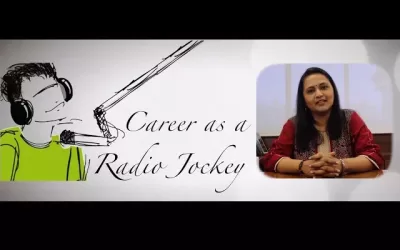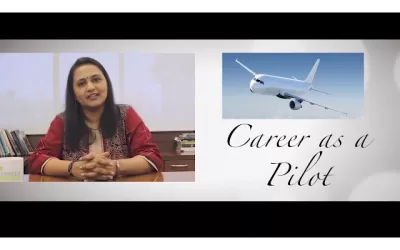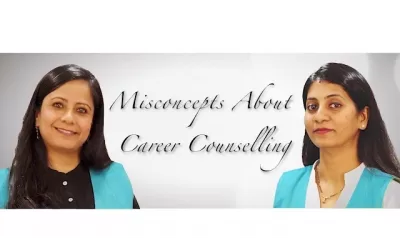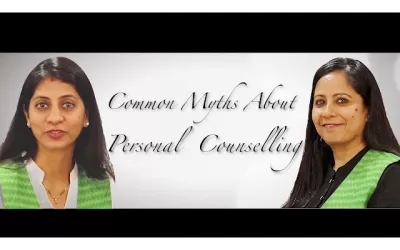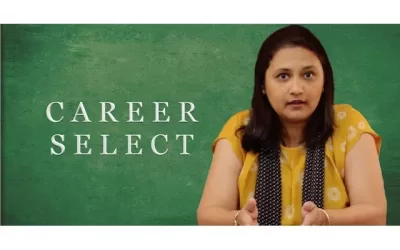Situation 1: “My daughter [who is 8th std] is interested in research”, “my son [in 9th std] is passionate about machines”, “I know my child [studying in 11th std] very well and she is going to join IIT only”.
 These and many phrases such as these we get to hear on a regular basis. And I am sure many parents would also connect with these. It is always good to know and identify what your child is good at, at an early age. But can we really just rely on these early passions?
These and many phrases such as these we get to hear on a regular basis. And I am sure many parents would also connect with these. It is always good to know and identify what your child is good at, at an early age. But can we really just rely on these early passions?
Let’s understand the difference between interest and passion. What most students [barring a few] feel towards a particular field is curiosity, fascination and glamour-based impression. As a parent/guardian, one has to understand passion is an intense feeling one has towards anything, field, or activity, regardless of the efforts and challenges. Check out whether is it just a fantasy stage or a tentative stage. Considering the teenagers, it is quite possible they are going through these two stages of interest. So, take a pause before you [as a parent/guardian / senior] encourage or emphasize only these choices.
Find out what they know about these careers and what is their source of information. Is it an influence an impression-based choice or an informed decision? Do they know what it takes to be in the chosen fields? Are they aware of the path and efforts to be undertaken? If you get a positive response to all the above questions, then you may take further appropriate actions and guide them.
If you realize that this is just a passing phase, then try to take professional advice to help your children make a decision. Do not be in a hurry to thrust a career choice on them. Give them some time to know more about careers, explore with them, understand what it takes to be in that career, and then help them make a decision.
Situation 2: “I am interested in becoming a Data Scientist”. “Investment banking or portfolio management – my only career choices”. “I am going to be a food stylist”. “Criminal law fascinates me”.
Hearing this from high school students, makes us think – is this just an attraction towards something that sounds ‘cool’, ‘trendy’ ‘intellectual’, or real passion for the field? Do they really know about the field or is it just the glamour or influence from a series they have been watching? Though we cannot generalize, we see more and more teenagers speak about careers that require higher educational degrees coupled with work experience in a specific field.
So how do we deal with a situation like this? Firstly, let’s understand unlike sports or talents in performing arts, academic pursuits require a different level of preparation, training, and being a part of the education system. The path is structured; one needs to undergo routine training and a trail of entrance exams, college admission procedures, and exams too. However, the non-academic pursuits require training that is not confined to the education system. It can be taken externally too. This is the difference and hence all those who have an inclination [at a very early age] towards academic routes, need to remember that they have to follow the routine processes until they reach their goals.
Understand the driving forces for these early passions, know the routes [educational / non-educational], be prepared to put in efforts, and seek the right information about the career and your child from professionals to ensure that the decision is taken and the right path is followed. Early Career Choices
Frequently Asked Questions (FAQs) For Early Career Choices
Q1: Why are early career choices important?
Early career choices set the foundation for your professional journey. They can impact your skill development, career trajectory, and overall job satisfaction.
Q2: How do I decide on a career path right after school or college?
Assess your strengths, interests, values, and aspirations. Research industries, and job roles, and explore internships or part-time jobs to gain practical insights.
Q3: Is it okay to explore different career options in the beginning?
Absolutely. Early career exploration is valuable. Trying different roles helps you discover your preferences, strengths, and areas of interest.
Q4: Should I focus on passion or practicality when making early career choices?
Strive for a balance. Consider a field that aligns with your interests while also offering stability, growth opportunities, and a viable career path.
Q5: How important is formal education for early career choices?
Formal education provides a strong foundation, but skills, networking, internships, and gaining practical experience also play significant roles in early career success.
Q6: Can I switch career paths later if I’m unhappy with my initial choice?
Yes, many people switch careers later in life. Early career choices aren’t set in stone. Gaining skills and transferrable experiences can facilitate transitions.
Q7: Should I prioritize job stability or growth potential in my first job?
It depends on your personal circumstances and goals. Some prioritize job stability for financial security, while others seek roles with growth potential.
Q8: What role does networking play in early career success?
Networking helps you access opportunities, gain insights, and learn from professionals in your field. Building a strong network can accelerate your career growth.
Q9: How do I handle job offers from different industries or roles?
Evaluate job offers based on factors like job responsibilities, growth opportunities, company culture, and alignment with your career goals.
Q10: Should I be concerned about salary in my first job?
While salary is important, early career jobs often provide learning opportunities and skill development that can pay off in the long run.
Q11: What if I’m not sure about my passion or career direction?
It’s common not to have all the answers early on. Seek career counseling, take career assessment tests, and explore industries through internships or informational interviews.
Q12: Is it advisable to take a gap year before making early career choices?
Taking a gap year can provide clarity, travel experiences, and time to explore different interests. It might help you make more informed career decisions.
Q13: Can volunteer work or internships influence early career choices?
Absolutely. Volunteer work and internships offer practical insights, help you build skills, and expose you to different industries and job roles.
Q14: Should I consider entrepreneurship as an early career choice?
Entrepreneurship can be a rewarding path if you have a strong business idea and the willingness to take risks. It requires planning, dedication, and adaptability.
Q15: How can I manage the pressure of making the right early career choices?
Remember that career paths are rarely linear. Be open to growth, embrace learning opportunities, and seek guidance from mentors or career advisors.
Q16: Can I change my early career choices as I gain more experience?
Yes, as you gain experience, your interests and goals might evolve. Continuously evaluate your career choices and make adjustments accordingly.
Early career choices are a journey of self-discovery and growth. By combining self-awareness, research, learning, and adaptability, you can make informed decisions that pave the way for a fulfilling and successful professional life.”

